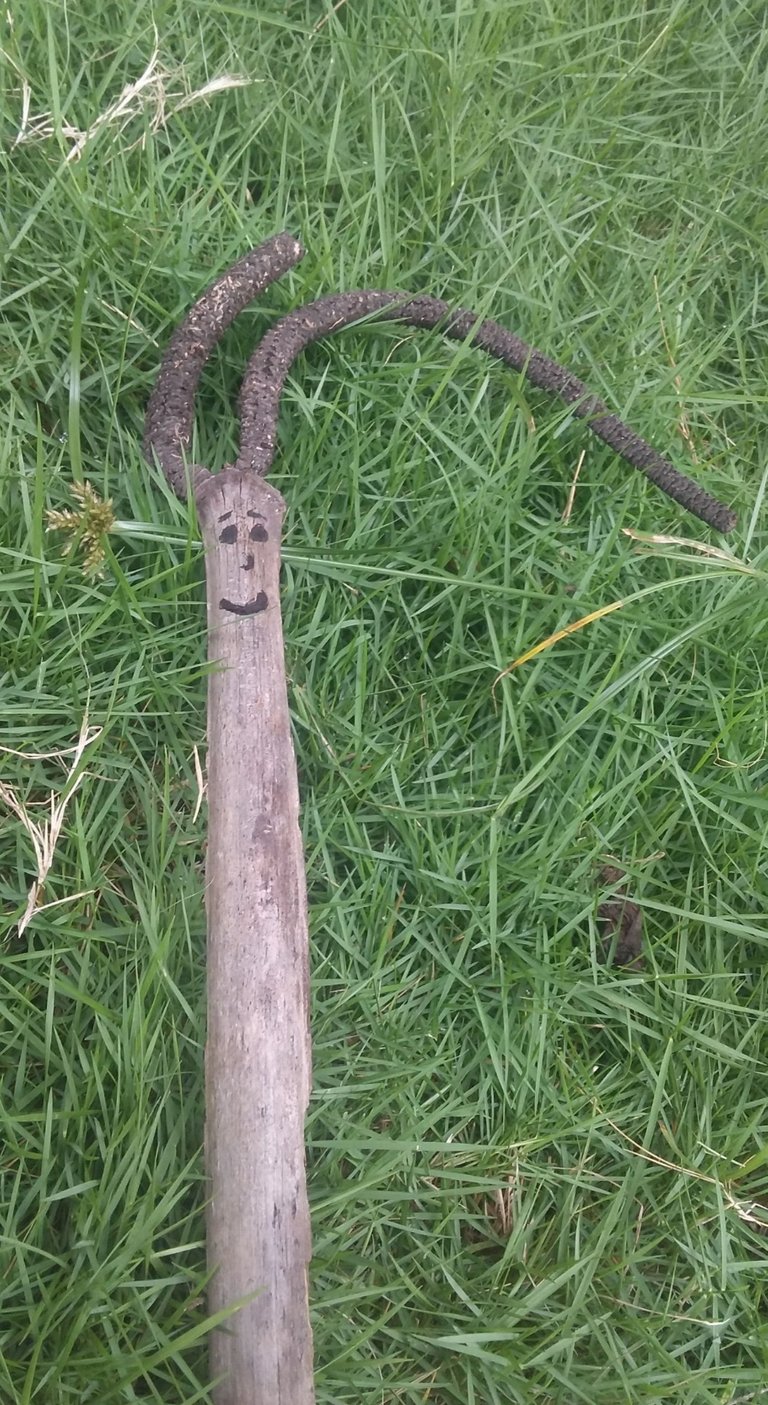Hispaliterario/Ante la sublime inocencia de Honorio//Before Honorio's sublime innocence
Saludos amigos de la comunidad Writing Club, @hispaliterario nos invita a una nueva aventura de escritura y he querido publicarla por aquí , debo reconocer que he disfrutado mucho la realización de esta historia que espero también les guste.

En el patio de los González dio sus frutos por más de cinco años un árbol de semeruco, era la delicia de niños y pájaros; su contraste de hojas muy verdes y frutos muy rojos alegraba las mañanas, cuando los ojos ávidos de la Gonzalera salía a recibir el dia con la primera taza de café. Sus ramas no eran muy fuertes y los niños del vecindario las doblaban para robar sus frutos, ante los gritos y amenazas de las mujeres que esperaban el mejor momento para descargarlo y hacer un dulce que mantenían en conserva para comer y compartir con galletas de soda.
Un día don Eloy decidió quitarlo porque necesitaba espacio para alargar el chiquero. Sus ramas fueron a dar con las de un uvero que también habían sacrificado por la misma razón. «Echa mucho humo», además las mujeres preferían cocinar con gas; allí sirvió de refugio a cotejos y ratones. Una vida sencilla, decían los hombres después de la faena, aquí se puede vivir tranquilo sin el barullo de la ciudad.
Un día el tío Nemesio comenzó a rebuscar, necesitaba un garabato para cortar el monte que ya estaba alto, su nieta de cinco años, acostumbrada a repetir lo que hacían los mayores, también agarró su trozo de madera de semeruco, pero esta tenía una forma curiosa, dos crinejas como rastas le salían por un lado, se lo mostró a su abuela, quien de manera diligente, le hizo ojos, cejas y boca, con un trozo de carbón; todo lo necesario para que encantara el corazón de la niña, que decidió llamarle Honorio, no se sabe por qué razón.

La niña jugaba con él y lo acomodaba en una silla durante las tardes de tertulia con el café, lo ponía cerca de la mesa en las tres comidas y lo acostaba a descansar en un chinchorro que hizo con trapillo, solo para que Honorio durmiera. Era un juego, decían los mayores, no pasa nada, así se entretiene.
La presencia de Honorio coincidió con varios sucesos que se dieron de manera extraña en el hogar. Se caían las ollas de sus clavos, hacinadas sin oficio desde hacía tiempo. Crujía la madera como lamentos, en las noches de extraño silencio y la mecedora, sola en el corredor, comenzaba a balancearse sin tener a nadie cerca. Fue la misma niña quien en un almuerzo, notando que los ojos de Honorio estaban más grandes y la mueca original se acercaba a una sonrisa, dijo: «Ya Honorio se siente feliz aquí, le gusta jugar con las ollas y mecerse mucho antes de irse a dormir». Un raro escalofrío recorrió la espalda de la abuela, pero no dijo nada, el tío Nemesio enarcó una ceja y la tía Emilia sonrió con tristeza.
El tío Nemesio, una mañana a manera de juego, le dijo a la niña: «¿por qué no le dices a tu Honorio que me dé un número para ganar la lotería?» La niña lo miró inexpresiva y al instante le dijo: «compra el 18 para todas». Ante la rápida respuesta de la niña el tío rio alegremente, y se fue a contarles a los demás. Esa noche mientras escuchaban la emisora, absortos cada uno en sus pensamientos, se sorprendieron al escuchar los números ganadores del sorteo del día: tres loterías habían coincidido con el mismo número en el primer premio, eso era insólito, no ocurre todos los días.
«Te llenaste» le dijeron a Nemesio y él se negó, no había comprado nada. Reclamos y rechiflas. «¿Cómo le voy a creer a un pedazo de palo?» Se defendía, con toda lógica. A partir de ese día Honorio se volvió confidente de la tía Emilia, quien a hurtadillas se lo robaba mientras la niña dormía y con inusitado desespero, le proponía, «hazme saber de la vida de Antonio». Por su parte la abuela, con el cuento de que estaba limpiando, se lo llevaba a la cocina y lo recostaba de la alacena y le suplicaba a la estaca, mientras le mesaba las rastas. «Dime quién me robó las tres gallinas o te convierto en leña sin pesar de mi alma». Nemesio se lo llevaba al monte y le decía en tono autoritario, «muéstrame, otra vez, el número ganador». Esa vez gastó en lotería hasta el último centavo, porque en cualquier lugar le parecía encontrar la forma de un número y el viejo Eloy le preguntó si sería buena idea comprar cinco marranos más.

En ese deambular, un día se perdió Honorio y comenzó la niña a lamentarse, «que yo lo dejé durmiendo en mi cama», gemía, ese día se negó a comer, hasta que este no apareciera, pero en la tarde el hambre ya había hecho estragos y repitió dos platos de frijoles con arroz; los adultos se veían inquisidores, pero cada uno sabía que no lo tenía y tampoco eran capaces de aceptar que lo habían utilizado repetidas veces en sus exigentes consultas.
Esa noche la madera crujió con más fuerza, la mecedora se balanceó del empujón que le dio don Eloy, cuando descubrió que el techo estaba invadido de comején. La abuela dejó caer las ollas con desolación, mientras allá entre los matorrales, Sultán, el nuevo cachorro de los González, mordisqueba con fruición el estropeado cuerpo de Honorio.
Gracias por tu lectura

Greetings friends of the [Writing Club] (https://ecency.com/created/hive-132410) community, @hispaliterario invites us to a new writing adventure and I wanted to publish it here, I must admit that I really enjoyed the making of this story that I hope you also like it.

It was the delight of children and birds; its contrast of very green leaves and very red fruits cheered the mornings, when the avid eyes of the Gonzalera went out to receive the day with the first cup of coffee. Its branches were not very strong and the children of the neighborhood would bend them to steal its fruits, before the shouts and threats of the women who waited for the best moment to unload it and make a sweet that they kept preserved to eat and share with soda crackers.
One day don Eloy decided to remove it because he needed space to enlarge the pigsty. Its branches ended up with the branches of a uvero that had also been sacrificed for the same reason. "It smoked a lot," and the women preferred to cook with gas; it served as a shelter for mice and mice. A simple life, the men said after work, here you can live quietly without the noise of the city.
One day uncle Nemesio began to rummage, he needed a doodle to cut the mountain that was already high, his five year old granddaughter, accustomed to repeat what the elders did, also grabbed his piece of wood of semeruco, but this one had a curious shape, two mane like dreadlocks came out on one side, she showed it to her grandmother, who diligently, made eyes, eyebrows and mouth, with a piece of charcoal; Everything necessary to charm the heart of the little girl, who decided to call him Honorio, for whatever reason.

The little girl would play with him and put him in a chair during the afternoons with coffee, put him near the table during the three meals and put him to rest in a hammock she made out of rag, just for Honorio to sleep. It was a game, the elders said, nothing happens, that way he entertains himself.
Honorio's presence coincided with several strange occurrences in the home. The pots were falling off their nails, which had been piled up without a job for a long time. The wood creaked like wailing in the nights of strange silence and the rocking chair, alone in the corridor, began to sway without anyone nearby. It was the same girl who at lunch, noticing that Honorio's eyes were bigger and the original grimace was approaching a smile, said: "Honorio already feels happy here, he likes to play with the pots and rock a lot before going to sleep". A rare shiver ran down Grandma's back, but she said nothing, Uncle Nemesio raised an eyebrow and Aunt Emilia smiled sadly.
Uncle Nemesio, one morning by way of a game, said to the little girl, "Why don't you tell your Honorio to give me a number to win the lottery?" The little girl looked at him expressionless and instantly said, "buy 18 for all of us". At the girl's quick response the uncle laughed gleefully, and went off to tell the others. That night as they listened to the radio station, each absorbed in their own thoughts.
"You have won" they told Nemesio and he refused, he had not bought anything. Complaints and booing. "How am I going to believe a piece of stick?". He defended himself, quite logically. From that day on Honorio became Aunt Emilia's confidant, who sneakily stole it from him while the girl slept and with unusual desperation, proposed, "let me know about Antonio's life". For her part, the grandmother, with the story that she was cleaning, would take him to the kitchen and lay him down from the cupboard and pleaded to the stake, while brushing his dreadlocks. "Tell me who stole my three chickens or I will turn you into firewood without repentance from my soul." Nemesio would take him to the bush and tell him in an authoritative tone: "show me, again, the winning number". That time he spent every penny in the lottery, because everywhere he seemed to find the shape of a number and old Eloy asked him if it would be a good idea to buy five more pigs.

In that wandering, one day Honorio got lost and the girl began to lament, "that I left him sleeping in my bed," she moaned, that day she refused to eat, until he did not appear, but in the afternoon hunger had already taken its toll and she repeated two plates of beans with rice; the adults looked at her inquisitively, but each one knew she did not have it and none was able to accept that they had used it repeatedly in their demanding consultations.
That night the wood creaked louder, the rocking chair swayed from the nudge Don Eloy gave it, when he discovered that the roof was overrun with termites. Grandma dropped the pots with desolation, while there among the bushes, Sultan, the Gonzalez's new puppy, nibbled with fruition on Honorio's ill-fated body.
Thanks for your reading
Todo mi contenido escrito es original/ All my written content is original.
He utilizado el traductor DeepL/I have used the translator DeepL.
Las imágenes las he editado con la aplicación gratuita Canva/I have edited the images with the free
Canva application.
También he usado los emojis de la aplicación avatoon/I have also used the emojis from the avatoon application.

|
@tipu curate 2
Upvoted 👌 (Mana: 0/52) Liquid rewards.
A veces, buscamos desesperadamente respuestas donde no las hay. Pienso que todo el mundo tiene una especie de Honorio en su vida. Para algunos puede ser el horóscopo; para otros un amuleto de la suerte o una serie de pasos antes de llevar a cabo una acción para que esta salga bien. Pocos están exentos de la superstición, y quizá por eso nos gustan tanto las historias de ficción como esta. Excelente relato, @charjaim. Saludos.
Muchas gracias, sí, quizá ese sea el deseo no tan oculto de muchos , buscar respuestas hasta en un pedazo de madera. Saludos cordiales, gracias por tu comentario.
https://twitter.com/994462222180126721/status/1649969505110556675
The rewards earned on this comment will go directly to the people( @juniorgomez ) sharing the post on Twitter as long as they are registered with @poshtoken. Sign up at https://hiveposh.com.
Has sido curado por @visualblock / You've been curated by @visualblock
Bienvenidas delegaciones / Delegations welcome
Encuentra nuestra comunidad aquí / Find our community here
Trail de Curación / Curation Trail
The little girl starved for Honorio disappearance, Nemesio used Honrorio to collect betting numbers, that is cool, smile....
Tell the little girl not to be sad, Honrorio is doing good wherever he is.
Honorio was taken by a dog in his mouth, heh heh, simple family life in the country. Best regards.
Que buena historia creaste con el personaje de Honorio, disfrute mucho leyendola. La creencias de los adultos al exigirle a la ramita que los ayudara, que contrasta con la inocencia de la niña que lo considero un compañero de juegos. Excelente
Saludos @charjaim
Gracias, amiga, me contenta que lo disfrutaras, a mí me divirtió escribirlo. Saludos cordiales.
Hermosamente narrado. Me recordaste a los viejos tiempos que solía pasar mi papá en el pueblo, ya casi desaparecido, durante su niñez. Las creencias de nuestros antepasados hoy en día están desapareciendo y los fantasmas y apariciones fueron espantados por a tecnología y el bullicio de las ciudades.
Gracias por tu participación. Saludos
Sí, todo ha cambiado mucho y los pueblos no se han escapado de ello, lo que no cambia es la inocencia de los niños y la habladuría de los adultos.
Saludos cordiales.